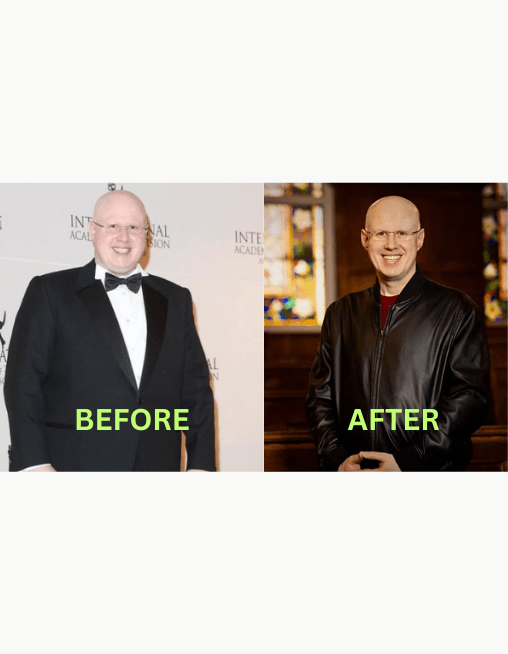Top 7 Weight Loss Apps: Tracking Your Way to Success
Related products
Tracking Your Way to Success
In the contemporary quest for wellness, weight loss presents itself as a formidable challenge, riddled with the complexities of modern lifestyles. The role of technology, especially weight loss apps, in facilitating health goals has emerged as a pivotal aspect of this journey. Dr. Helen Burns, a leading nutritionist at the London Wellness Centre, asserts, "The interplay between technology and health is reshaping how we approach weight loss, making it more accessible and manageable than ever before."
Tracking progress is not merely a motivational tool; it is a critical component of weight loss success. The narrative of shedding pounds is often accompanied by the arduous task of maintaining a consistent and dedicated approach to health. As Dr. Burns explains, "The act of recording one’s dietary intake and physical activity can increase awareness and accountability, which are key drivers in the pursuit of weight loss."
Weight loss apps serve as a digital ally in this narrative, extending beyond mere tracking tools to become an integral part of the weight management ecosystem. Their ability to provide immediate feedback and a structured approach to diet and exercise has marked them as a game-changer in the industry. Statistics from a survey conducted by the Health Data Consortium reveal that individuals using weight loss apps were 40% more likely to achieve their targets, underscoring the transformative impact of these applications.
Be cognizant that weight reduction typically requires a holistic plan, combining reduced calorie intake, active and healthy lifestyle habits, and in some cases, the appropriate use of medical assistance with products such as Wegovy.
Criteria for Choosing the Best Weight Loss Apps
Selecting the quintessential weight loss app is a nuanced process that demands careful consideration of several features. Renowned for its potential to tailor a weight loss regime, an app must offer comprehensive nutritional tracking, activity monitoring, and community support to be deemed effective. Dr. Marcus Yi, an obesity specialist, states, "The best weight loss apps are those that address the multifaceted nature of weight loss, integrating data and providing insights into one’s habits." User-friendliness and customization emerge as non-negotiable attributes for these digital tools. An app's ability to adapt to the individual’s preferences and goals is a testament to its sophistication.
Dr. Yi adds, "An app must resonate with the user’s lifestyle and preferences to foster long-term engagement and sustainable results." Furthermore, in an era where data breaches are not uncommon, privacy and data security considerations are paramount. According to cybersecurity expert Laura Chen, "Users must seek apps that guarantee the protection of their personal information through robust security measures." It is essential for users to have confidence in the app's ability to safeguard their data, which is intrinsic to the fabric of the digital health movement.
What are the Top 7 Weight Loss Apps?
The top weight loss apps typically combine features like calorie counting, nutrition tracking, activity monitoring, and community support to help users achieve their weight loss goals. As fitness technology researcher Dr. Jason Fox highlights, "The best weight loss apps are those that have demonstrated a consistent ability to facilitate users in achieving tangible health outcomes. "While the "top" can vary depending on the criteria used, such as user ratings, download counts, or feature sets, here are seven highly regarded weight loss apps as of my last update:
- MyFitnessPal: Offers comprehensive calorie and activity tracking with a vast food database.
- Lose It!: Focuses on calorie counting and includes a feature to scan food barcodes.
- Noom: Uses psychology-based approaches to promote long-term, sustainable weight loss.
- Weight Watchers (WW): Provides a point-based system to encourage healthier eating habits.
- Cronometer: Tracks calories and offers detailed nutritional analysis.
- FatSecret: Features a calorie counter, nutritional diary, and exercise log.
- SparkPeople: Includes meal plans, fitness tracking, and support from a community.
1. MyFitnessPal

MyFitnessPal is lauded for its extensive food database and comprehensive tracking capabilities, which enable users to monitor both their caloric intake and physical activity. The key to its success is the depth of its nutritional library and the simplicity of its tracking features. With the ability to log food through barcode scanning and a user-friendly interface, it helps users stay accountable and informed about their eating habits.
Reviews for MyFitnessPal
Users often praise MyFitnessPal for its extensive food database, asserting that the variety it offers makes logging meals easy and convenient. The app's ability to track both calorie and activity levels is frequently highlighted, with many appreciating the comprehensive overview it provides of their daily habits. However, some users mention that the user interface could be more intuitive, and there have been mentions of the premium subscription being a bit costly for those on a budget.
2. Lose It!

Lose It! is designed with simplicity and efficiency in mind, specialising in calorie counting and offering a quick barcode scanning feature that makes food tracking as effortless as possible. Its focus on easy logging and a personalised weight loss plan helps users stay motivated and on track with their goals.
Reviews for Lose It!
Lose It! is commended for its straightforward calorie counting tools and the intuitive barcode scanner, which simplifies the food logging process. Users have mentioned that the app's clean design and user-friendly interface make it an enjoyable tool to use daily. While most feedback is positive, some users have suggested that the app could benefit from a broader food database, particularly for international foods.
3. Noom

Noom stands out by incorporating a psychological approach to weight loss, aiming to create long-term, sustainable habits. It uses cognitive-behavioral therapy techniques to help users understand and overcome their eating habits and barriers to weight loss. Noom’s success is attributed to its personalized coaching and structured programs that address the mental aspects of weight loss.
Reviews for Noom
Noom's psychological approach receives mixed reviews. Many users report positive long-term weight loss results and appreciate the app’s focus on making sustainable lifestyle changes. The coaching aspect is often noted as being motivational, though some users find the program slightly expensive. A few reviews have called for improvements in the personalization of the content provided.
4. Weight Watchers (WW)

Weight Watchers (WW) has evolved into a digital format with a points-based system, which simplifies the complexity of nutritional values into an easy-to-follow numeric score, encouraging healthier food choices. Its community-oriented approach and regular updates to its points system keep it relevant and supportive for users.
Reviews for Weight Watchers (WW)
The WW app's point-based system is praised for making healthy eating simpler and more gamified. Users enjoy the social features, including the community support and the regular updates to the points system, which keep the app fresh and engaging. However, some users note the subscription can be a bit pricey compared to other apps.
5. Cronometer

Cronometer offers a more detailed analysis of calorie and nutrient intake, appealing to those who are not only interested in weight loss but also in achieving specific nutritional goals. Its comprehensive nutrient tracking helps users to not just eat fewer calories but to consume the right ones, which can be critical for overall health and weight loss.
Reviews for Cronometer
Users who are more detail-oriented love Cronometer's detailed nutritional analysis, and it is particularly well-reviewed by those who are also fitness enthusiasts or have specific health goals. It is often lauded for the accuracy and depth of the nutritional information. Some users, however, find the level of detail overwhelming and the interface less intuitive than simpler apps.
6. FatSecret

FatSecret is a practical and straightforward app featuring a calorie counter, nutritional diary, and exercise log, making it a comprehensive tool for managing weight loss. Its community aspect, including support groups and forums, adds a layer of support that many users find invaluable.
Reviews for FatSecret
The FatSecret app is frequently commended for being a comprehensive and free tool that includes a calorie counter, nutritional diary, and exercise log. The community aspect is also a well-liked feature, as it adds a layer of support and accountability. A few users have suggested improving the app's food database and the user interface design.
7. SparkPeople

SparkPeople provides a more holistic approach to weight loss, with meal plans and fitness tracking integrated into a supportive community. It encompasses not just the nutritional and exercise components of weight loss but also the motivational and educational aspects, making it a well-rounded tool for health and fitness.
Reviews for SparkPeople
SparkPeople is often recognized for its holistic approach to weight loss, offering meal plans and fitness tracking alongside community support. Users enjoy the variety of resources available, including recipes and workout demos. Some users, however, have noted that the app can feel cluttered and that navigation could be more streamlined.
What are the benefits of using Weight Loss Apps for weight loss?
Weight loss apps offer a multitude of benefits to individuals looking to lose weight, improve their dietary habits, or enhance their overall health. Here are some of the key advantages:
Convenience: One of the most significant benefits of weight loss apps is their convenience. They are accessible right from your smartphone, which means you can track your diet and exercise anytime, anywhere. This accessibility encourages consistent use, which is crucial for weight loss.
Accountability: By keeping a daily log of your food intake and physical activity, weight loss apps help increase your accountability. Seeing your habits reflected in real time can motivate you to make healthier choices and stick to your weight loss plan.
Nutritional Information: Weight loss apps provide extensive nutritional information, which can educate users about the value of the foods they consume. This knowledge can lead to better dietary choices and a more balanced diet.
Goal Setting: These apps allow users to set personal goals and track their progress towards achieving them. Clear goal-setting, guided by the app, can be highly motivating and give users a tangible path to follow.
Personalisation: Most weight loss apps offer personalized plans based on the user's age, weight, height, activity level, and weight loss goals, making the advice and recommendations more relevant and achievable.
Feedback and Progress Tracking: With visual progress charts and feedback, users can easily see how far they've come and what they need to do to reach their goals, which can be incredibly encouraging.
Social Support: Many weight loss apps have a community component where users can share experiences, challenges, and successes. This peer support can be a powerful motivator and provide a sense of camaraderie on the weight loss journey.
Integration with Other Devices: The ability to integrate with other health devices and apps allows for a more comprehensive health tracking ecosystem. Users can sync their fitness trackers, smart scales, and other health apps for a holistic view of their health.
Customized Feedback: Some apps use AI to provide customized feedback and coaching, which can help users understand the context behind their behaviours and receive personalized advice.
Confronting Emotional Eating: Apps like Noom focus on the psychological aspects of eating and help users identify and deal with emotional eating triggers, which can lead to more sustainable weight loss.
Accessibility to Expertise: Weight loss apps can provide access to professional advice from nutritionists, dietitians, and personal trainers, which might otherwise be unavailable or costly.
Cost-Effectiveness: Compared to traditional weight loss programs, which often require subscriptions, meal purchases, or personal coaching, apps are a cost-effective alternative that provides valuable resources for a fraction of the price.
How to Maximize Success with Weight Loss Apps?
In the pursuit of weight loss, the incorporation of technology into daily routines is essential. Weight loss apps are designed to fit seamlessly into our lives, yet their proper integration is often overlooked. Dr. Samantha Roberts, a clinical psychologist with expertise in behavioural change, advises, "The key to success with any weight loss app is consistency. Use the app at the same time each day, for example, log meals immediately after eating to maintain accuracy." This habitual use turns weight tracking from a conscious effort into an automatic part of one’s routine.
Additionally, leveraging app notifications can serve as timely reminders to log meals, drink water, or stay active, further embedding the app's presence into one’s day-to-day life. Statistics underscore the efficacy of consistent app usage. A study published in the 'Journal of Medical Internet Research' found that users who logged their meals six to seven times a week lost significantly more weight than those who did so less frequently. By setting aside specific times for app-related activities, users can increase the likelihood of weight loss success.
Expert Opinions on Making the Most Out of App Features
Experts in the field of dietetics and fitness emphasize the importance of utilizing all the features that weight loss apps offer. As nutritionist Dr. Laura Thompson states, "Don’t just use these apps to log food; engage with their entire ecosystem. Track your water intake, join in on community challenges, and read the articles they offer."
This holistic engagement ensures users gain a comprehensive understanding of health and wellness. Moreover, many apps offer customization options that can tailor the user experience to individual needs. Dr. Thompson further suggests, "Personalize the app settings to align with your specific goals, whether that’s losing weight, gaining muscle, or improving overall nutritional habits." By doing so, users can create a more focused and personal journey towards their goals.
Avoiding Common Pitfalls
Despite the potential benefits, there are common pitfalls associated with using weight loss apps that users should be mindful of. One such pitfall is the over-reliance on the app's data without considering context. Dr. Roberts warns, "Apps can provide data, but they lack the nuance of human judgment. It’s important to listen to your body and not just the numbers on the screen." Users should remember that apps are tools to assist with weight loss, not infallible solutions. Another potential issue is the accuracy of self-reported data.
A report by the National Institutes of Health highlighted that inaccurate logging is one of the most significant barriers to effective weight loss with apps. Users should take care to measure portions accurately and record intake honestly to ensure the data reflects reality. In summary, while weight loss apps can be highly effective tools, their success hinges on consistent and mindful use. By integrating these apps into daily routines, fully exploring their features, and avoiding common mistakes, users can greatly enhance their journey towards achieving their weight loss objectives.
Conclusion
The landscape of weight loss apps is diverse and rich with options, each offering unique features that cater to the varied needs of those on a weight loss journey. From the extensive food database of MyFitnessPal to the psychological insights of Noom, the meticulous nutritional analysis provided by Cronometer, and the community support of SparkPeople, there is an app out there to suit every preference and goal.
User reviews highlight the importance of choosing an app that resonates personally, as engagement and consistency are key to successful weight management. While some users seek detailed tracking and expert advice, others prefer simplicity and ease of use. The cost is also a factor, with some users willing to invest more in premium features that offer a more tailored experience.
Ultimately, the effectiveness of a weight loss app is determined by how well it integrates into one's daily routine, the level of personalization it offers, and the sustainable habits it helps to build and maintain. With the right app in hand, the journey towards a healthier lifestyle can become more structured, informed, and, most importantly, achievable. As technology continues to evolve, so too will these digital tools, offering ever more sophisticated and user-friendly ways to support individuals in their weight loss and health goals.












 Rated Excellent by 14,617+ Reviews
Rated Excellent by 14,617+ Reviews